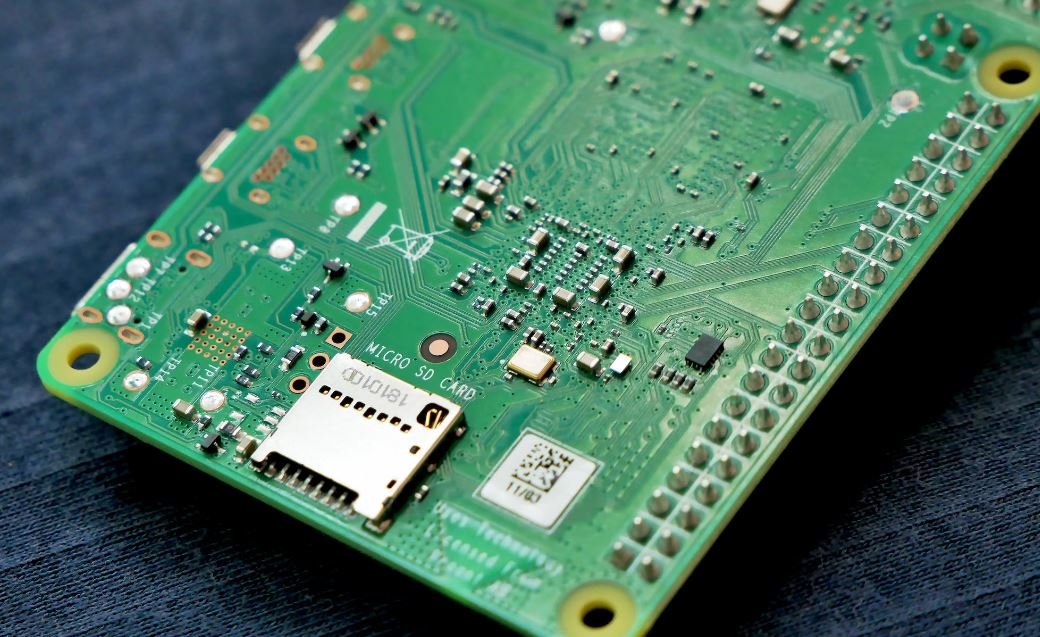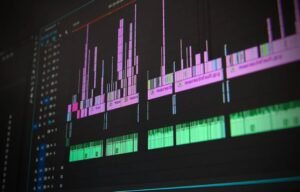Where Is AI Used Today?
Artificial Intelligence (AI) is rapidly transforming various industries and sectors, revolutionizing the way we work and live. From autonomous vehicles to virtual assistants, AI has become an integral part of our daily lives. In this article, we will explore some of the key areas where AI is currently being used.
Key Takeaways:
- AI is being used in diverse areas such as healthcare, finance, transportation, and manufacturing.
- Machine learning algorithms power many AI applications, allowing systems to learn from data and improve over time.
- AI technologies like natural language processing and computer vision enable advanced human-like interactions with machines.
1. Healthcare: AI has the potential to revolutionize healthcare by aiding in early diagnosis, personalized treatment plans, and drug discovery. *Researchers are using AI to analyze massive amounts of medical data to identify patterns and predict diseases.* Additionally, AI-powered robots and chatbots can assist in patient care and provide valuable medical advice.
2. Finance: The finance industry heavily relies on AI to detect fraudulent activities, make investment decisions, and automate customer service. *Machine learning algorithms can analyze massive financial datasets with speed and accuracy, enabling more efficient risk assessment and trading strategies.* AI-powered chatbots are also being used to improve customer experience by providing real-time support and personalized recommendations.
3. Transportation: AI is reshaping the transportation industry with self-driving cars, drones, and predictive maintenance systems. *Self-driving cars can enhance road safety and reduce accidents by leveraging AI to analyze real-time data and make informed decisions.* Drones equipped with AI technology can be used for various purposes, including delivery services and surveying inaccessible areas.
4. Manufacturing: AI is revolutionizing manufacturing by improving efficiency, optimizing production, and enabling predictive maintenance. *Machine learning algorithms can analyze sensor data to detect anomalies and predict equipment failures, reducing downtime and improving productivity.* Collaborative robots, or “cobots,” work alongside human workers, increasing productivity and safety in manufacturing environments.
AI in Action: Interesting Data Points
| Industry | AI Application | Data Points |
|---|---|---|
| Healthcare | Diagnosis Assistance | AI algorithms achieved a diagnostic accuracy similar to human dermatologists in detecting skin cancer from images. |
| Finance | Fraud Detection | AI-based systems detected 95% of fraudulent credit card transactions, resulting in significant cost savings for financial institutions. |
In addition to the above industries, AI is widely used in natural language processing (NLP) for voice recognition and language translation, computer vision for image and object recognition, and robotics for automation and human-robot interaction. These technologies enable seamless interaction between humans and machines, making AI an essential part of our daily lives.
AI Adoption Challenges
- Data Privacy and Security: The increased use of AI requires careful consideration of data privacy and security to protect sensitive information.
- Ethics and Bias: Ensuring AI fairness and preventing biased decision-making is crucial to avoid perpetuating social inequalities.
- Workforce Transformation: The rapid advancement of AI may require reskilling or upskilling the workforce to adapt to changing job roles and requirements.
| Industry | AI Application | Data Points |
|---|---|---|
| Transportation | Autonomous Vehicles | Autonomous vehicles equipped with AI technology have the potential to reduce traffic accidents by up to 90%. |
| Manufacturing | Predictive Maintenance | Predictive maintenance powered by AI can reduce maintenance costs by up to 30% and increase equipment uptime. |
As AI continues to evolve, we can expect its applications to expand further into various industries and sectors. From enhancing customer experience to improving efficiency and safety, the potential of AI is immense. It is crucial to address the challenges related to data privacy, ethics, and workforce transformation to ensure responsible and widespread adoption of AI.

Common Misconceptions
AI is only used in advanced technology industries
Many people believe that artificial intelligence (AI) is only used in advanced technology industries such as robotics or self-driving cars. However, AI is actually used in a wide range of industries and sectors, from healthcare to finance to marketing.
- AI is widely used in healthcare for medical diagnosis and drug discovery.
- AI is employed in the finance industry to detect fraudulent activities and make intelligent investment decisions.
- AI is utilized in marketing to analyze customer data and personalize advertising campaigns.
AI will replace human jobs completely
There is a common misconception that AI will completely replace human jobs, leading to mass unemployment. While AI technologies can automate certain tasks and roles, they are designed to work alongside humans rather than replace them entirely.
- AI systems can enhance productivity by automating repetitive tasks, freeing up time for humans to focus on more complex and creative work.
- AI technologies require human oversight and intervention to ensure ethical decision-making and accountability.
- New job opportunities are emerging as AI creates demand for skills such as AI engineering, data analysis, and machine learning.
AI is only for big companies with large budgets
Another misconception is that only big companies with large budgets can afford to implement AI technologies. In reality, AI tools and solutions are becoming more accessible and affordable for businesses of all sizes.
- Cloud-based AI platforms offer cost-effective solutions that eliminate the need for heavy infrastructure investments.
- Open-source AI frameworks and libraries provide free resources for businesses to experiment and develop their own AI applications.
- AI-as-a-service models allow businesses to access AI capabilities without significant upfront costs or specialized expertise.
AI always gets it right and is never biased
There is a misconception that AI systems are infallible and completely unbiased. However, AI technologies are developed by humans and can inherit biases present in the data and algorithms used to train them.
- Biased datasets can result in AI systems that discriminate against certain groups or perpetuate social inequalities.
- AI algorithms can exhibit biased behavior if they are not properly trained on diverse datasets and monitored for fairness.
- Addressing bias in AI requires conscious efforts to collect representative data, develop unbiased algorithms, and implement rigorous testing and validation processes.
AI only understands and processes data, not human emotions
Some people believe that AI is purely data-driven and incapable of understanding or processing human emotions. While AI cannot experience emotions like humans do, developments in natural language processing and sentiment analysis have made it possible for AI to recognize and respond to human emotions.
- AI chatbots and virtual assistants can use sentiment analysis to adapt their responses and provide more empathetic interactions.
- AI-powered emotion recognition systems can analyze facial expressions, tone of voice, and other cues to detect emotions in humans.
- AI technologies are being utilized in mental health care to assist in emotion recognition and mood analysis, aiding in diagnosis and treatment decisions.

AI in Healthcare
In the healthcare industry, AI is used for a variety of applications, including improving patient care and diagnosis. The table below highlights some areas where AI is currently being used in healthcare.
| Application | Examples |
|---|---|
| Medical Imaging | AI algorithms analyze radiology images to detect abnormalities. |
| Drug Discovery | AI models simulate molecular interactions to identify potential new drugs. |
| Virtual Assistants | AI chatbots provide quick answers to common medical questions. |
| Patient Monitoring | AI systems monitor patients’ vital signs and alert healthcare providers in case of abnormalities. |
AI in Finance
In the financial sector, AI plays a crucial role in various tasks like fraud detection and risk assessment. These are some key areas where AI is used:
| Application | Examples |
|---|---|
| Fraud Detection | AI algorithms analyze large volumes of data to identify suspicious transactions. |
| Algorithmic Trading | AI systems execute trades based on predefined criteria and market analysis. |
| Credit Scoring | AI models assess creditworthiness and determine the risk associated with lending. |
| Customer Service | AI-powered chatbots assist customers in resolving financial inquiries. |
AI in Transportation
The transportation industry is benefiting greatly from AI advancements, leading to improved efficiency and safety. Check out the table below to see how AI is applied in transportation:
| Application | Examples |
|---|---|
| Autonomous Vehicles | AI enables self-driving cars to navigate roads and make real-time decisions. |
| Traffic Management | AI systems analyze traffic data to optimize signal timings and reduce congestion. |
| Supply Chain Optimization | AI algorithms optimize delivery routes and manage inventory more efficiently. |
| Ride-Sharing | AI platforms match drivers and passengers, maximizing efficient use of vehicles. |
AI in Education
The field of education is also leveraging AI to enhance learning experiences and personalize education. Here are some notable uses of AI in the education sector:
| Application | Examples |
|---|---|
| Smart Tutoring | AI systems provide customized learning materials and adapt to individual needs. |
| Automated Grading | AI algorithms assess and grade student assignments, saving time for educators. |
| Language Learning | AI tools help learners practice and improve their language skills through interactive exercises. |
| Education Analytics | AI analyzes educational data to identify patterns and improve educational policies. |
AI in Retail
Retailers have embraced AI technologies to optimize inventory, enhance customer experiences, and deliver personalized recommendations. The table below outlines some areas where AI is applied in the retail sector:
| Application | Examples |
|---|---|
| Inventory Management | AI systems predict demand, optimize stock levels, and reduce wastage. |
| Recommendation Engines | AI algorithms suggest products based on customer preferences and buying patterns. |
| Chatbots | AI-powered chatbots provide customer support, answer queries, and assist with purchases. |
| Visual Search | AI allows users to search for products using images instead of text-based queries. |
AI in Agriculture
AI in agriculture is transforming traditional farming practices, improving yields, and reducing resource wastage. Take a look at the table below to learn about some AI applications in agriculture:
| Application | Examples |
|---|---|
| Precision Farming | AI enables precise planting, fertilization, and irrigation based on data analysis. |
| Pest Control | AI models identify pests and diseases, allowing for targeted interventions. |
| Crop Monitoring | AI systems track crop health and growth, alerting farmers of any issues. |
| Harvesting Automation | AI-powered robots perform precise and efficient harvesting operations. |
AI in Entertainment
The entertainment industry has integrated AI into various aspects, enabling enhanced user experiences and content creation. Here are some interesting uses of AI in entertainment:
| Application | Examples |
|---|---|
| Content Recommendation | AI algorithms suggest movies, music, and other media based on user preferences. |
| Virtual Actors | AI-generated virtual actors appear in movies and video games. |
| Music Composition | AI systems compose music based on specific genres or styles. |
| Real-time Visual Effects | AI helps create stunning visual effects in movies and video games. |
AI in Customer Service
Customer service departments greatly benefit from AI, which provides efficient support and improves response times. Here are some AI applications in customer service:
| Application | Examples |
|---|---|
| Chatbots | AI-powered chatbots handle customer inquiries and provide instant assistance. |
| Speech Recognition | AI systems transcribe and analyze customer calls, improving service quality. |
| Sentiment Analysis | AI tools analyze customer feedback to assess sentiment and track satisfaction levels. |
| Personalization | AI algorithms tailor customer interactions based on individual preferences and purchase history. |
AI in Cybersecurity
AI plays a critical role in combating cybersecurity threats by detecting and mitigating potential breaches. The table below showcases AI applications in cybersecurity:
| Application | Examples |
|---|---|
| Anomaly Detection | AI models identify abnormal patterns of behavior that could indicate a cyber attack. |
| Threat Intelligence | AI systems analyze vast amounts of data to identify emerging cybersecurity threats. |
| Fraud Prevention | AI algorithms detect fraudulent activities and prevent unauthorized access. |
| Vulnerability Management | AI-powered tools identify vulnerabilities and suggest methods to address them. |
From healthcare to transportation, finance to entertainment, AI has made significant strides in various industries. With its ability to process large amounts of data and perform complex tasks, AI continues to revolutionize how we live and work. As technology advances, we can expect even greater integration of AI, leading to further advancements and new opportunities.
Frequently Asked Questions
What industries benefit from the use of AI?
Industries such as healthcare, finance, transportation, retail, manufacturing, and customer service have greatly benefited from the use of AI.
How is AI used in healthcare?
AI is used in healthcare for tasks such as diagnosing diseases, predicting patient outcomes, analyzing medical images, and aiding in drug discovery.
In what ways is AI used in finance?
AI is used in finance for tasks such as fraud detection, algorithmic trading, credit scoring, risk assessment, and customer service.
Can you provide examples of AI usage in transportation?
AI is used in transportation for autonomous vehicles, traffic monitoring and management, route optimization, and predictive maintenance.
What are some applications of AI in retail?
AI is used in retail for tasks such as personalized marketing, inventory management, demand forecasting, virtual shopping assistants, and chatbots for customer support.
How is AI utilized in manufacturing?
AI is used in manufacturing for tasks such as quality control, predictive maintenance, supply chain optimization, robotic process automation, and product design and optimization.
What role does AI play in customer service?
AI plays a significant role in customer service through chatbots, virtual assistants, sentiment analysis, voice recognition, and personalized recommendations.
Are there any AI-powered virtual assistants available?
Yes, there are several AI-powered virtual assistants available today, such as Amazon Alexa, Google Assistant, Apple Siri, and Microsoft Cortana.
How does AI contribute to cybersecurity?
AI contributes to cybersecurity by detecting and analyzing patterns in data to identify potential threats, automating threat prevention and response, and enhancing overall network security.
Can AI be used in the field of education?
Yes, AI is used in education for tasks such as personalized learning, intelligent tutoring systems, automated grading, and educational content recommendations.




